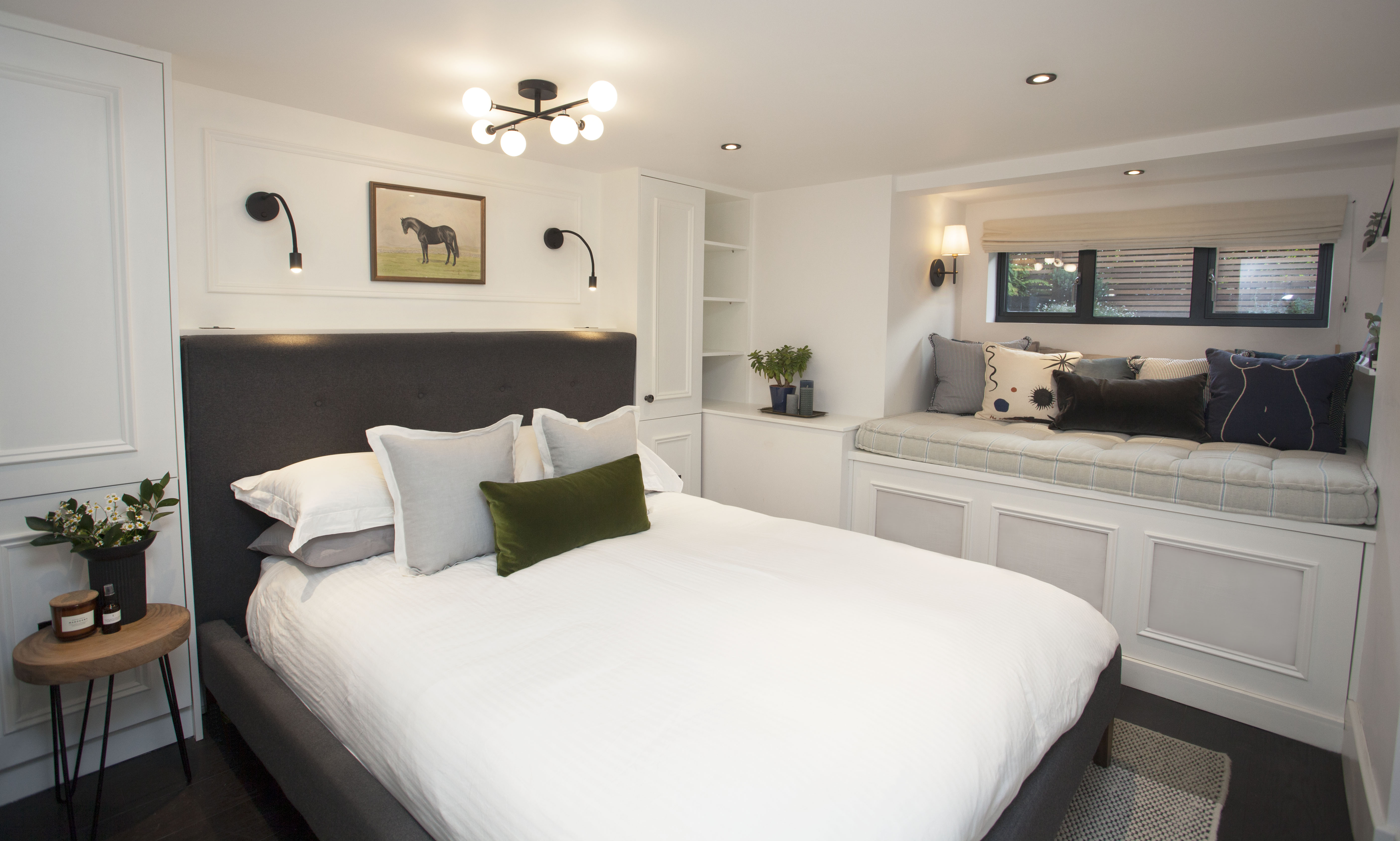Addressing Potential Challenges: Simple Basement Bedroom Ideas

Transforming a basement into a bedroom can be a rewarding project, but it’s crucial to address potential challenges to ensure a comfortable and healthy living space. These challenges include moisture and humidity, soundproofing, heating and cooling, and maximizing storage space.
Managing Moisture and Humidity
Basements are prone to moisture and humidity due to their proximity to the ground. Addressing this issue is essential for preventing mold growth and maintaining a healthy environment.
- Ensure Adequate Ventilation: Proper ventilation is crucial for removing excess moisture. Install a dehumidifier to remove moisture from the air. Consider adding an exhaust fan in the bathroom to remove steam during showers. Ensure windows can be opened for natural ventilation when weather permits.
- Improve Insulation: Insulating walls and ceilings helps prevent condensation and temperature fluctuations. This creates a more comfortable living space and reduces energy costs. Consider using spray foam insulation or rigid foam boards for optimal results.
- Waterproofing: A waterproof basement is essential for preventing leaks and moisture intrusion. Ensure proper drainage around the foundation and inspect for cracks or gaps in the foundation walls. Apply a waterproof sealant to any cracks or gaps.
Soundproofing a Basement Bedroom, Simple basement bedroom ideas
A basement bedroom can be susceptible to noise from outside sources, such as traffic or neighbors. Soundproofing measures can create a more peaceful and private environment.
- Sound-Absorbing Materials: Use sound-absorbing materials like acoustic panels, carpets, and rugs to minimize noise reflection. Thick curtains can also help reduce noise from outside windows.
- Window Treatments: Install double-pane windows or add soundproof window treatments to reduce noise transmission. Thick curtains or blinds can help absorb sound and create a more private space.
- Carpet: Carpets can help absorb sound and create a more comfortable and quieter environment. Consider using thick, plush carpets for optimal sound absorption.
Ensuring Adequate Heating and Cooling
Maintaining a comfortable temperature in a basement bedroom can be challenging due to the lack of natural light and potential for temperature fluctuations.
- Space Heaters: Space heaters can be used to supplement existing heating systems and provide localized warmth. Choose space heaters with safety features like tip-over protection and automatic shut-off.
- Air Conditioners: During hot weather, air conditioners can help cool the basement bedroom. Consider portable air conditioners or window units depending on the size of the room and your budget.
- Energy-Efficient Solutions: Consider using energy-efficient appliances and light bulbs to reduce energy consumption and minimize heating and cooling costs. Proper insulation and sealing of windows and doors can also improve energy efficiency.
Maximizing Storage Space
Basements often offer ample storage space, which can be valuable for a bedroom. Consider these strategies for maximizing storage:
- Under-Bed Storage: Utilize under-bed storage containers or drawers to store items that are not frequently used. This maximizes floor space and keeps items organized.
- Built-in Shelves: Built-in shelves can be a stylish and practical way to add storage space. They can be used to display books, decorations, or store clothing and other items.
- Multi-Functional Furniture: Invest in multi-functional furniture pieces like ottomans with storage compartments, beds with built-in drawers, or desks with shelves. This maximizes space and adds functionality to the bedroom.
